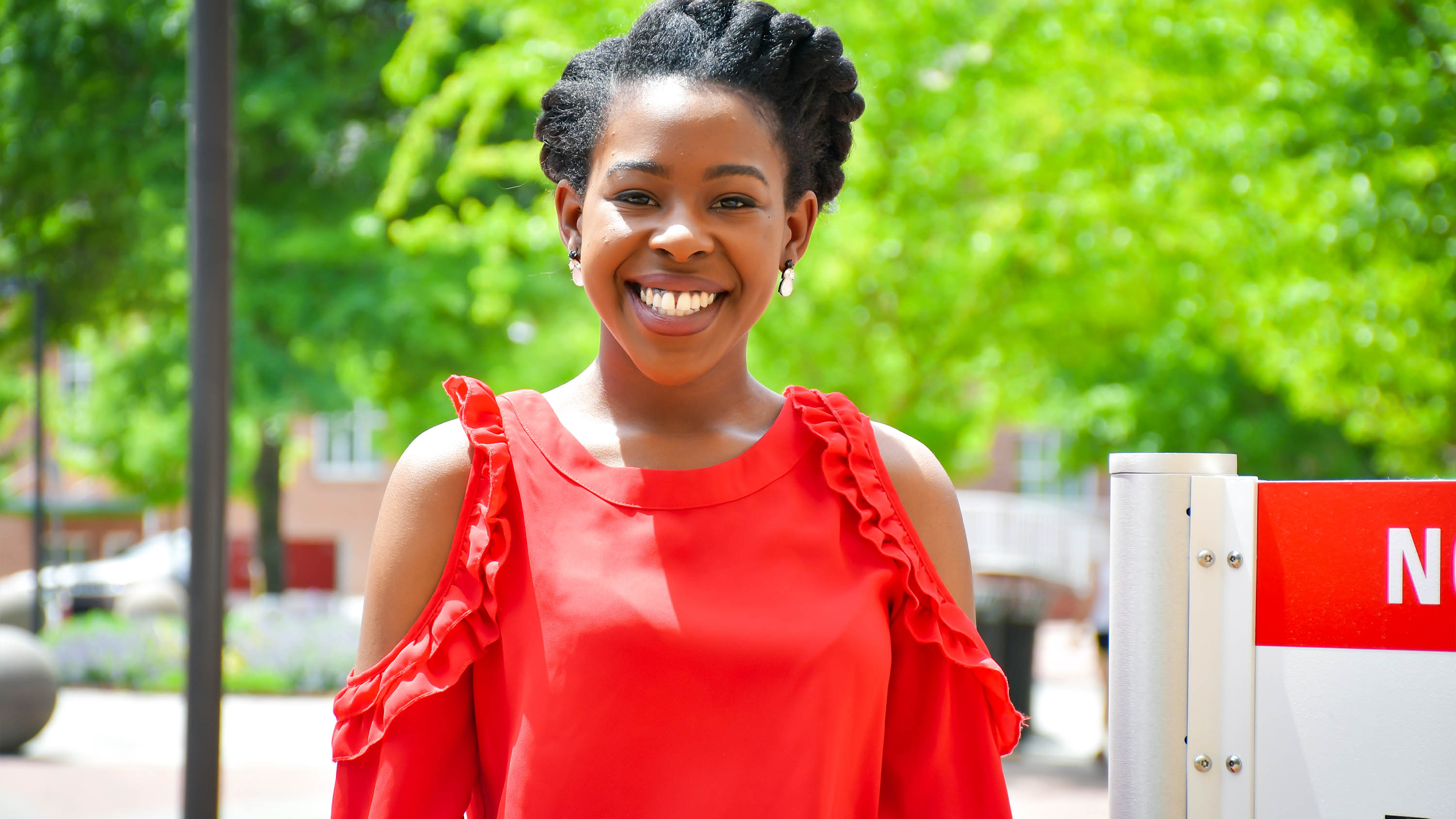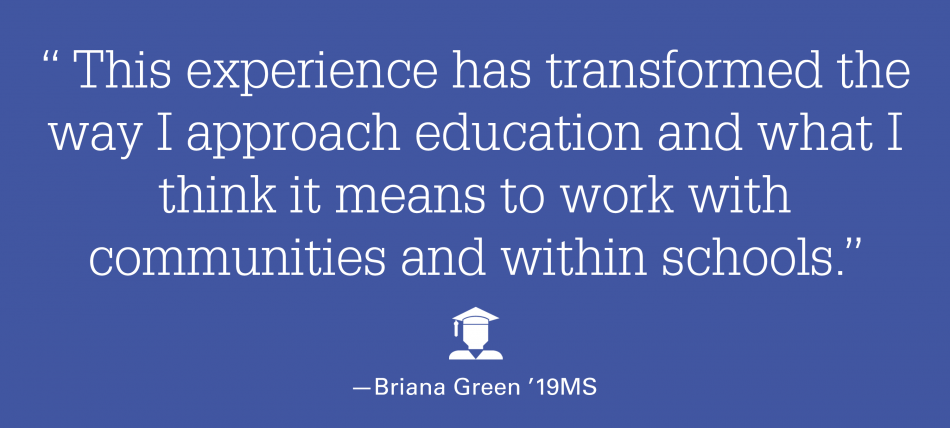Briana Green ’19MS: Helping Students and Teachers Using Technology

 Having finished her student teaching requirement, Briana Green, a master’s student studying curriculum and instruction, was on track to teach middle school business and marketing when she learned about the NC State College of Education’s SMART Collaborative, an interdisciplinary community of educators and researchers who are committed to making schools places where all students want to be and want to learn.
Having finished her student teaching requirement, Briana Green, a master’s student studying curriculum and instruction, was on track to teach middle school business and marketing when she learned about the NC State College of Education’s SMART Collaborative, an interdisciplinary community of educators and researchers who are committed to making schools places where all students want to be and want to learn.
She shares how an opportunity to serve as an undergraduate researcher helped her find a passion for helping teachers and students alike benefit from technology. The following as-told-to is edited from an interview.
As an undergraduate business and marketing education student, I was the president of the Multicultural Young Educators Network (MYEN), a student organization that promotes unity among diverse groups of students within the College of Education and the university and prepares pre-service educators to be competent in diverse environments.
During that time, we invited Dr. DeLeon Gray [associate professor of educational psychology] to a meeting to talk about his research and how MYEN could support it. It just so happened that he was looking for undergraduate students or pre-service teachers to fulfill different roles within his research project.
Having finished my student teaching, I applied and became the curriculum, or lesson, planner for his project. That opportunity changed the course of my career path and propelled me into my graduate studies.
Over the past three years, I have worked in the capacity of developing curriculum alongside teachers in the field that centers on students’ backgrounds, the teachers themselves, their funds of knowledge and what they know about their students. We also take into account what those teachers know about the realities of the classroom.
This experience has transformed the way I approach education and what I think it means to work with local communities and within schools.

The most important — and I think the most influential — part of being part of this team is going into engineering classrooms when teachers implement the curriculum we have built together. I get to see firsthand what bumps up against the available time in class and what bumps up against the technology we try to integrate.
I grew up alongside the internet. I learned to code by customizing my Myspace page, but I didn’t know I was learning to code. Now, our students are interfacing with more technologies, but often they know less about their languages or skills such as typing or coding that are necessary to not only be consumers but creators. We push for technology in our classrooms, but are we actually equipped for our students to use those technologies at full capacity? Are the spaces equipped for what we are proposing?
That’s why I am pursuing a Ph.D. focused in educational psychology and educational technology.
Sometimes when people talk about technology, they think about building robots or learning skills for the workforce. But I want to investigate how we can empower both students and teachers by being intentional about the technology we introduce into the classroom. I want to look at the opportunity costs of new technologies and why some new technologies turn into barriers, in the absence of real-world connections to improving student lives or their communities.
I want to dive into how technology is a tool and mechanism for helping students see themselves as change agents.
Working as a graduate assistant researcher, I have been able to step back and ask, “What is educational psychology? What are its goals for my people? And how does it consider my people’s histories, values and goals? What is education research?” Often research aims for universal truths, but the same interventions, instructional supports, motivational behaviors, don’t work for all populations or settings. That’s what I have learned from this experience.
There are so many paradoxes about teaching and complexities to supporting student achievement but I continue to believe this is an opportunity to be creative about research at the intersection of student motivation, identity and technology.
–As told to Leah Jarvis
- Categories:


